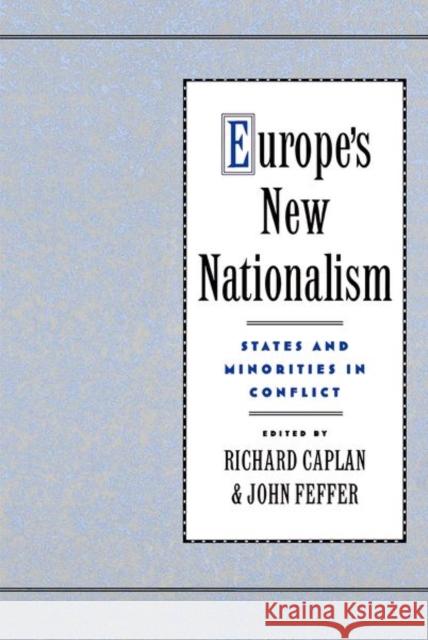Europe's New Nationalism: States and Minorities in Conflict » książka
Europe's New Nationalism: States and Minorities in Conflict
ISBN-13: 9780195091496 / Angielski / Miękka / 1996 / 256 str.
The end of the Cold War has witnessed the re-emergence of nationalism as a major force in Europe. With the collapse of Yugoslavia, the newly won independence of the Baltic states, the unification of Germany, the civil wars in Bosnia and Georgia, and the rise of xenophobia in France, the issue of nationalism in Europe could not be more salient. But what explains nationalisms renewed importance in Europe? What distinguishes the various expressions of nationalism across Europe today? Why is nationalism associated with conflict in some cases and not in others? Is nationalism enhancing or undermining the prospects for democratic development within Europe? And how should Europe respond to the challenges posed by nationalism? This provocative volume collects fourteen essays by prominent European scholars and journalists who reflect on the meaning, origins, and implications of Europe's "new nationalism." The book identifies and examines the principal questions raised by the resurgence of nationalism in post-Cold War Europe. Controversial and timely, the writings offer students fresh perspectives from different intellectual and ideological points of view and suggest possible solutions which are bound to spark debate about the nature and likely impact of contemporary European nationalism.











